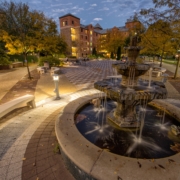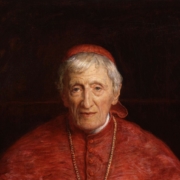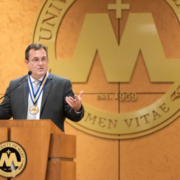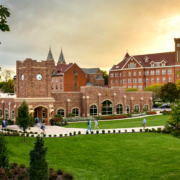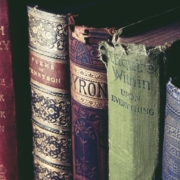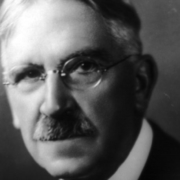Statement Regarding Franciscan University of Steubenville and The Newman Guide
Earlier this week, a report by Church Militant revealed that the chairman of the English department at Newman Guide-recommended Franciscan University of Steubenville (FUS) assigned a blasphemous and pornographic book in an upper-level class last spring. The University’s spokesman initially seemed to defend the choice as part of the University’s intellectual formation to prepare Catholic students for a secular world.
The Cardinal Newman Society and many others, including Franciscan University parents and alumni, expressed deep concern. We reached out directly to the University and have been communicating with the president, Father Sean Sheridan, TOR.
Yesterday Father Sheridan issued a strong apology and an affirmation of the University’s Catholic identity. He apologized for the University’s initial weak response and acknowledged that the assigned book is “so directly pornographic and blasphemous that it has no place on a Catholic university campus.” He promised action “to immediately review and revise our existing policy on academic freedom to prevent future use of scandalous materials,” and the Newman Society hopes to be able to share that new policy with other Catholic colleges to prevent similar scandals.
Although Father Sheridan insisted in his statement that the professor who assigned the book—then chairman of the University’s English Department—had no “malicious” intent and sought to prepare students “for challenging conversations” with non-Catholics, the professor was quickly replaced as department chair.
Franciscan University’s Catholic Identity
What to make of this? First, it is important to stipulate that an English reading assignment that viciously blasphemes the Mother of God and is explicitly pornographic—all with the apparent intent of leading readers away from God—is reprehensible, disgusting, and without academic merit. It is contrary to the mission of a Catholic college. Catholic families who send their children, at great expense, to Newman Guide colleges do so precisely because they are avoiding these types of problems.
Second, to defend assignment of the book on academic freedom grounds completely warps the true meaning and purpose of academic freedom. As Saint John Paul II explained, academic freedom protects teaching and research within the confines of a professor’s discipline and in conformity to truth, which is foundational to the college’s Catholic mission. (Here are some resources on the often misunderstood notion of academic freedom: LINK and LINK and LINK.)
Third, Father Sheridan’s apology was clear and strong, he promised policy changes that would prevent future scandals, and the University appears to have acted quickly in replacing the professor as chair of the English Department. In charity, we should accept the apology while watching to confirm that this indeed never happens again.
While disappointed and shaken by the scandal, we see very encouraging signs that Franciscan University continues to uphold its much-deserved reputation as a strongly faithful Catholic college. How many other Catholic college presidents would have condemned this error, apologized publicly, and promised to ensure that it will never happen again? What other colleges would have responded with a Holy Hour of Reparation to Mary, Mother of God, and a request that all faculty members—in all academic departments—profess the Oath of Fidelity during a forthcoming Mass? We have long said that no Newman Guide college is immune from error, but Franciscan University is one that retains our great admiration, not least because it has been a leader in the renewal of faithful Catholic education for more than four decades.
This scandal comes on the heels of a series of articles late last year that claimed that Franciscan University administrators were working, or at least hoping, to water down its faithful approach to Catholic higher education. The articles were deeply disconcerting, but they relied primarily on anonymous quotes and conjecture. We responded by reaching out to trusted professors and to University leadership. The professors did express some concern for Franciscan University’s future; they worried about the intent of actions to promote “diversity,” and they cited claims by other professors that Catholic teaching might be undermined. But none of them could or would provide conclusive evidence of any actual problem, on the record. None suggested that faithful Catholic families should avoid Franciscan University or that the Newman Society should remove it from the Newman Guide. On the contrary, they continued to value Franciscan University as a place where students would be strengthened in their faith from the classroom to the dorm room.
Moreover, Franciscan University has an army of faithful faculty members, students, parents, and alumni who are watchmen for the University’s Catholic mission. In that we have great hope! Deo gratias!
The Newman Guide
The fact is that every Catholic college today faces a strong pull from the culture, secular society, and even some Church leaders to compromise Catholic identity in order to be more “modern,” “diverse,” “welcoming,” or “pastoral.” Only those Catholic colleges that are intentional about remaining faithful to their Catholic mission—at all times and in all areas of campus life—will be able to avoid the temptation of compromise and hypocrisy and withstand society’s assault on morality and religious freedom.
Newman Guide colleges are not immune to this pressure to secularize, and they are neither perfect nor identical. To their credit, however, we find that when they discover things contrary or threatening to their mission, they fix it. The Newman Society quietly works with many of our recommended colleges each year to help make them aware of problems, which they diligently work to correct.
More than that, most of the Newman Guide colleges have begun to collaborate with each other through a series of working groups that we established. These help college leaders and staff support each other and learn from each other, developing best practices for maintaining and enhancing Catholic identity. This is good news for the Church and for Catholic families.
The Newman Guide has and continues today to proudly recommend Franciscan University of Steubenville to Catholic families. None of the Newman Guide colleges is right for every student; no college is. But we strongly believe that Catholic education is valuable and that Catholic families should give preference to our recommended colleges, including Franciscan University, for an authentic and faithful Catholic education. Collectively they are the best the Church has to offer today, and with the support and encouragement of faithful Catholic families, God willing they will continue to renew and improve faithful Catholic higher education.
Finally, it is important to note that our recommendations are not written in stone, and the college leaders know this well. Today, we are confident that the ten percent of Catholic colleges recommended in the Newman Guide are serious about upholding their Catholic mission—but if we find sufficient reason to doubt this, after careful review and documentation, we will remove them from the Newman Guide without hesitation. Ultimately the Newman Society’s first priority is to serve the needs of Catholic families and to uphold the authentic mission of Catholic education, wherever and however it may be provided to our precious young people, who deserve genuine Catholic formation.

